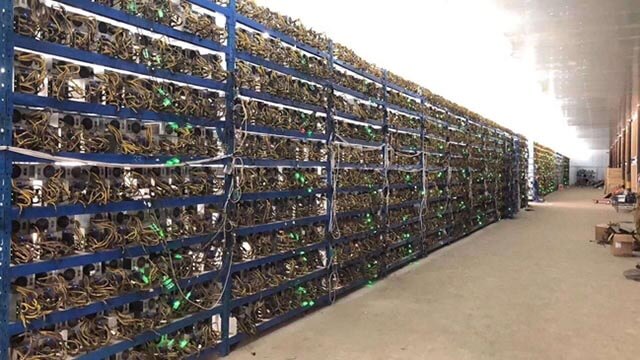Bitcoin has been taking a lot of guff in that it allegedly leaves behind a serious carbon footprint. Many new reports have emerged over the past week claiming the process of extracting new coins does heavy damage to our environment and that it uses more energy than various countries. However, according to figures like Mike Coyler – chief executive of Foundry – bitcoin can somehow serve as a link between present energy and renewable energy, and perhaps the nasty, environmentally-unfriendly attitude it’s garnered over the years isn’t entirely justified.
Mike Coyler: Bitcoin Can Operate on Renewable Energy
Foundry is a sister company of Grayscale, which presently offers traders access to the largest bitcoin trust in the world. Coyler believes that there is such a huge demand for renewable energy at the time of writing, that there is more of this type of energy than people know what to do with. Having all that energy just stored away somewhere can be a costly expense – especially if it’s not being used.
Coyler is now suggesting that mining firms be placed near these reserves. This will help the world in two areas: it puts the renewable energy to use, and it keeps bitcoin and money flows constant. He stated in a recent interview:
It allows for a faster payback on those solar projects or wind projects, which means more of them can be built faster in regions where before it was not attractive because they would produce too much energy for the grid in that area.
The bad news is that while a select few miners out there seem to agree with the idea, there are several figures who remain unconvinced this will do anything significant. They continue to bash the process of bitcoin mining and believe things will remain unimproved until all operations are shut down.
One company presently trashing the process of BTC mining is Bank of America. Last week, the financial institution issued a scathing report claiming that bitcoin mining now used more energy than American Airlines, which flies more than 200 million passengers across the country each year. In addition, the company stated that for every $1 million put into bitcoin, the asset requires as much energy as 1.2 million cars.
The report explains:
Bitcoin’s estimated energy consumption has grown over 200 percent in the past two years, creating large environmental risks.
One of the big problems the report points out is that most mining occurs in countries such as China, which are still heavily reliant on coal and other fossil fuels.
Some Have Already Made the Switch
Still, Coyler is pushing his initial argument and says many operations have already switched over to renewable sources. He comments that if some have already done so, there’s no reason why the rest can’t follow suit at some point:
The bitcoin algorithm is relentless in its drive for efficiency and cost reduction.



